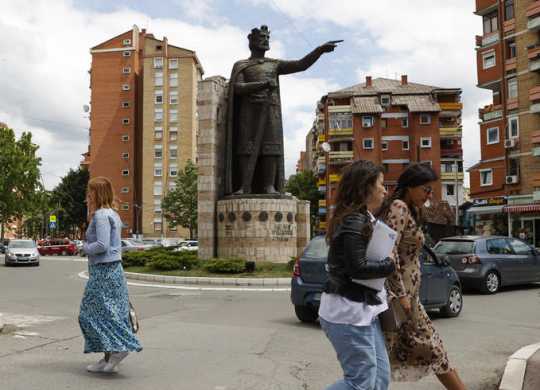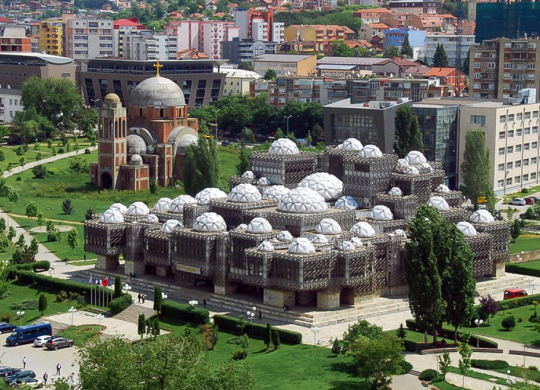Work visa for Kosovo. What you need to know about employment in Kosovo
Table of contents

The Republic of Kosovo is a partially recognized state located in Southeastern Europe. Under the laws of Serbia, it is considered part of this state, but in practice, Kosovo has its power, located in the capital, the city of Pristina. Political uncertainty brings confusion to many branches of state activity, including economics. In particular, this is due to the issuance of visas for rest and work in the country for foreigners.
Structure of the Kosovo economy
Despite continuous economic growth since the late 1990s, the Republic of Kosovo is one of the poorest countries in Europe. Its financial system is largely dependent on international assistance: the Albanian diaspora, the UN, and third countries (international funds). Foreign aid is the main source of finance in the country.
The level of average wages in the country is low. The main reason for the weak development of the economy lies in the unresolved political status of the state. This imposes restrictions on the possibility of investing in the country's economy by various states and private corporations.
One of Kosovo's problems is high unemployment. According to the statistics of 2013, its level was 30% of the able-bodied population. And although this level is gradually decreasing, the total number of unemployed people in the country remains significant. Therefore, the attraction of foreign labor remains in question. The exception is skilled workers, who are scarce in the country. For example, in the field of IT, computer technology, science, and banking, foreign equipment maintenance personnel.
According to the statistics of 2013, the distribution of the working-age population by industry is as follows:
• public, state service, and army — 31.8%;
• state-owned enterprises — 13.3%;
• private enterprises — 46.7%;
• family companies (without employees) — 4.3%;
• humanitarian and non-governmental organizations — 3.9%.
By the summer of 2022, these values have changed slightly, but the overall trend has remained the same. About 70% of the country's GDP is profit from the service sector. There are 9 commercial banks in Kosovo, as well as 13 insurance companies. There are three large telecommunications companies — IPKO, PTK, and Kujtesa. All goods that transit through the country are subject to a 10% customs duty. These sources of income account for a significant portion of GDP.
On the territory of Kosovo, significant deposits of minerals have been discovered — lead, zinc, nickel, cobalt, bauxite, and magnesite. Also, there is indium, cadmium, zeolite, thallium, and germanium. There are the largest deposits of brown coal — lignite. However, the extraction of these minerals is difficult due to the lack of imported equipment. Therefore, one of the reasons why there is not enough work in Kosovo is the reluctance of foreign companies to supply their equipment to a partially recognized state.
The following industries operate in Kosovo:
• the Flor-En meat processing plant, located in the area of the community called Dry River;
• shoe factory Solid, whose products are distributed not only on the territory of the Republic of Kosovo but are also exported.
There is more than 300 km of railway in the country. Accordingly, workers are constantly required to maintain the railway track and rolling stock. In rare cases, foreigners are taken here provided they are highly qualified (for managerial and engineering positions). There is also a bus service with nearby countries — Albania, Turkey, North Macedonia, Serbia, and Montenegro. Wages in the transport sector are low but paid regularly and steadily.
Work visa in Kosovo
Due to the fact that Kosovo is a partially recognized state, there are no embassies in this country everywhere. For example, residents of European countries can apply for assistance from the representative offices of the specified country located in Turkey, Macedonia, Hungary, and Bulgaria.
To obtain a work visa, you must first have a Schengen visa, as well as an invitation from a local employer. The rest of the documents depend on the position in which it is supposed to work. In general, the list of documents will be as follows:
• international passport;
• valid Schengen visa;
• employer invitation;
• confirmation of financial solvency (bank statement);
• a brief description of the position in which it is supposed to work and the salary level;
• rental documents.
To obtain a work visa, it makes sense to seek legal support from a professional company, whose employees will tell you how to act in a particular situation with paperwork. This will save you from possible mistakes and misunderstandings.
Recommended articles
5 min
Work
7 min
Work
5 min
Treatment
4 min
Residence permit
All materials and articles are owned by VisitWorld.Today and are protected by international intellectual property regulations. When using materials, approval from VisitWorld.Today is required.